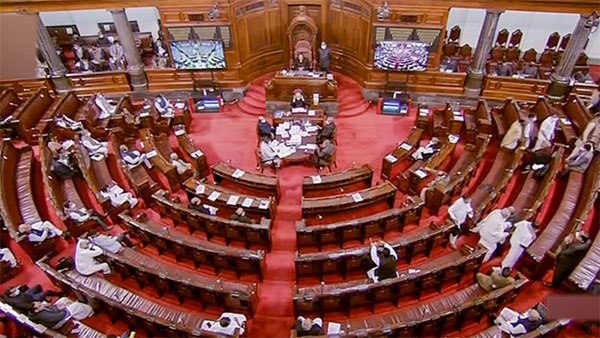Daijiworld Media Network - New Delhi
New Delhi, Jul 24: The Centre on Thursday firmly stated that Operation Sindoor was launched in direct retaliation to a brutal cross-border terror strike by Pakistan-backed militants, and was a targeted military action with no external influence on its course or cessation.
Responding to queries in the Rajya Sabha, Minister of State for External Affairs Kirti Vardhan Singh described the operation as “focused, measured, and non-escalatory,” aimed at dismantling terrorist networks and neutralising launch-ready threats emanating from across the Line of Control.
The statement came in reply to MP Ramji Lal Suman’s questions about the motivation behind the operation’s ceasefire and whether international pressure had played a role. Dismissing such claims, Singh said the campaign was a calibrated military response, not subject to foreign influence.

He noted that Pakistan had tried to provoke further conflict by targeting Indian civilian and military areas, which were met with a “strong and decisive” Indian counteroffensive that caused significant damage to Pakistani military assets.
According to the minister, hostilities paused only after Pakistan’s Director General of Military Operations reached out to India’s DGMO on May 10, requesting an end to engagements — a request that India accepted later that day.
Launched on May 7, Operation Sindoor saw Indian forces destroy nine terror training camps in Pakistan and PoK through precision airstrikes, carried out in response to the April 22 terrorist attack in Pahalgam.
Singh also highlighted India’s ongoing diplomatic campaign to expose Pakistan’s role in fostering terrorism, pointing to the international community’s growing recognition of India’s concerns.
He cited successes such as the UN Security Council's condemnation of the Pahalgam attack, sanctions on Pakistan-based individuals under the UN’s 1267 regime, and Pakistan’s inclusion in the FATF grey list.
The minister also mentioned the U.S. designation of The Resistance Front — a Lashkar-e-Taiba proxy — as a Foreign Terrorist Organisation, calling it a key development in bolstering global support for India’s anti-terrorism stance.
Addressing a query on Pakistan’s selection as Vice-Chair of the UN Counter Terrorism Committee in 2025, Singh explained it was a routine rotational appointment and not indicative of any endorsement, noting that India had held the same chair in 2011–12 and again in 2022.